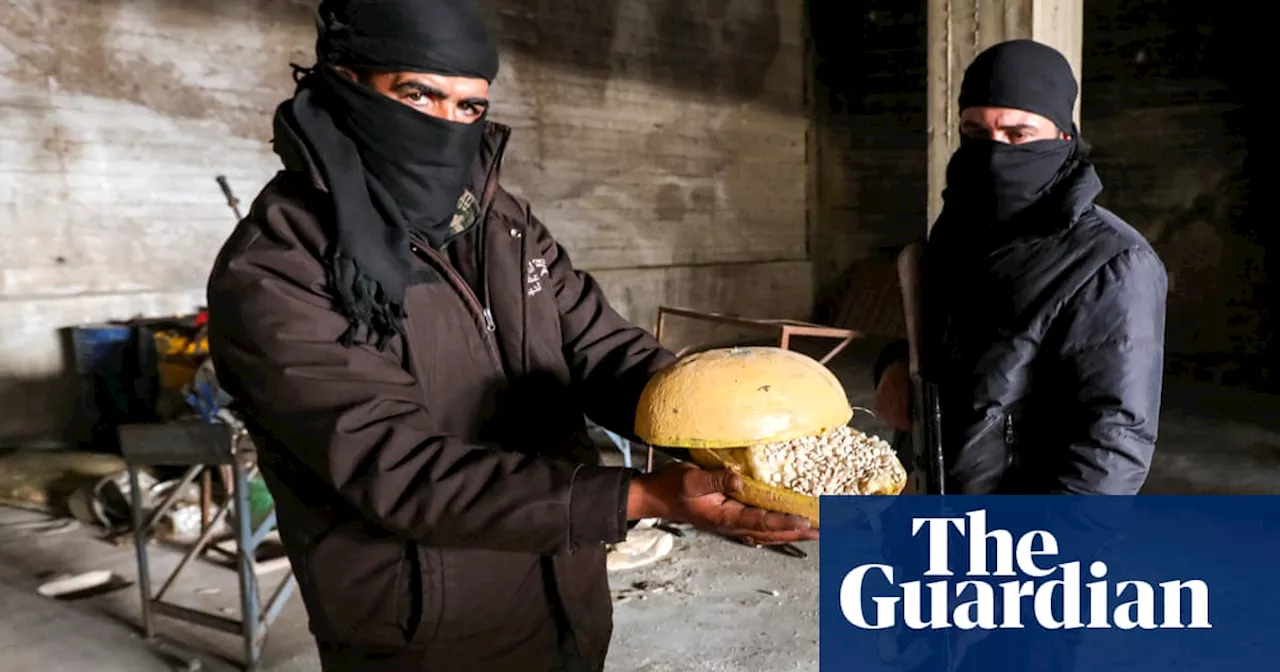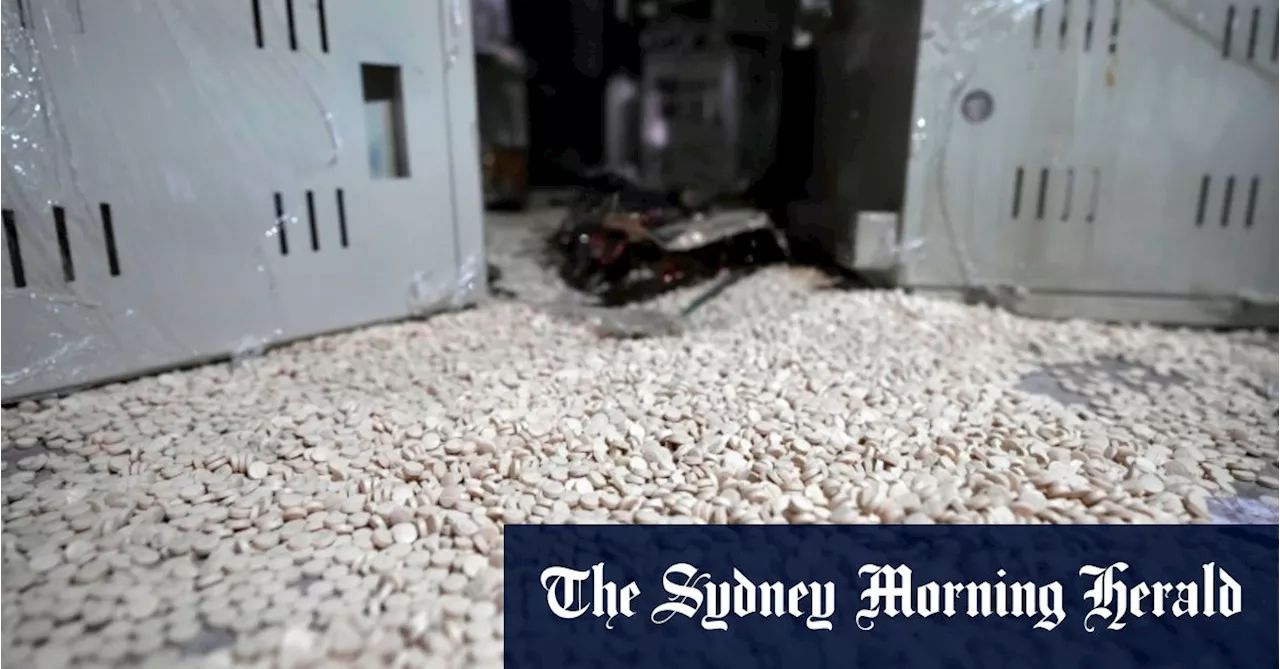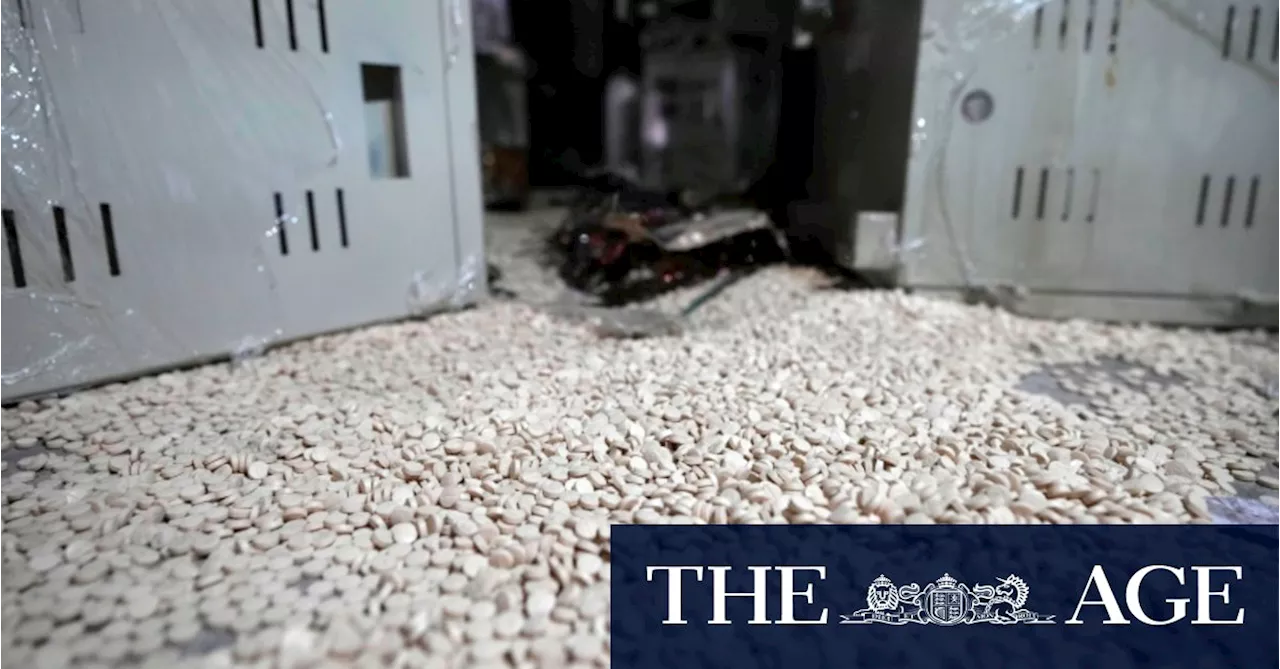Burnt-out rooms reveal extent of lucrative regime-supported operation to smuggle drug across region
t was no secret, everyone seemed to know where it was. When asked for directions, the coffee vendor pointed up the hill. “The Captagon factory? Straight ahead.”
Originally an anti-narcolepsy drug produced in central Europe, the amphetamine soon became infamous within the Middle East, as the Syrian regime and Iranian-backed militias began to mass produce it during the Syrian civil war. Analysts estimated the Assad regime netted $5bn annually from the trade, a value many times larger than the official budget and a vital lifeline for the bankrupt state.
Jars of chloroform and formaldehyde sat next to sacks of sodium hydroxide, precursors for the production of Captagon, the formula of which researchers said in recent years varied wildly. The alleged owner of the facility, Amer Khiti, was a former MP sanctioned by the US in 2020 due to his ties to the Assad regime. The UK also imposed sanctions on him due to his ownership of multiple businesses in Syria which “facilitate the production and smuggling of drugs, including Captagon”.
Australia Latest News, Australia Headlines
Similar News:You can also read news stories similar to this one that we have collected from other news sources.
 Syrian rebels seize vast haul of banned drug captagon, country’s largest exportDrug dwarfed all legal exports put together, with Assad’s brother widely believed to be power behind lucrative trade
Syrian rebels seize vast haul of banned drug captagon, country’s largest exportDrug dwarfed all legal exports put together, with Assad’s brother widely believed to be power behind lucrative trade
Read more »
 Inside the largest known captagon lab financing the Assad regimeIn the dark, cavernous warehouses at the abandoned site in Douma, fighters who ousted Assad found thousands of pills hidden in furniture, fruit and electronics.
Inside the largest known captagon lab financing the Assad regimeIn the dark, cavernous warehouses at the abandoned site in Douma, fighters who ousted Assad found thousands of pills hidden in furniture, fruit and electronics.
Read more »
 Inside the largest known captagon lab financing the Assad regimeIn the dark, cavernous warehouses at the abandoned site in Douma, fighters who ousted Assad found thousands of pills hidden in furniture, fruit and electronics.
Inside the largest known captagon lab financing the Assad regimeIn the dark, cavernous warehouses at the abandoned site in Douma, fighters who ousted Assad found thousands of pills hidden in furniture, fruit and electronics.
Read more »
 Inside the largest known captagon lab financing the Assad regimeIn the dark, cavernous warehouses at the abandoned site in Douma, fighters who ousted Assad found thousands of pills hidden in furniture, fruit and electronics.
Inside the largest known captagon lab financing the Assad regimeIn the dark, cavernous warehouses at the abandoned site in Douma, fighters who ousted Assad found thousands of pills hidden in furniture, fruit and electronics.
Read more »
 Assad made billions from Captagon, but what now for his drug empire?The Syrian regime was also one of the world's biggest drug syndicates. What happens to the multi-billion-dollar drug trade now that the 'narco-state' has fallen?
Assad made billions from Captagon, but what now for his drug empire?The Syrian regime was also one of the world's biggest drug syndicates. What happens to the multi-billion-dollar drug trade now that the 'narco-state' has fallen?
Read more »
 'Captagon': Images points to Assad regime's involvement in large-scale trafficking of illicit drugsThe large warehouse was reportedly located at the headquarters of a military division near Damascus that was commanded by Assad&x27;s brother Maher.
'Captagon': Images points to Assad regime's involvement in large-scale trafficking of illicit drugsThe large warehouse was reportedly located at the headquarters of a military division near Damascus that was commanded by Assad&x27;s brother Maher.
Read more »
